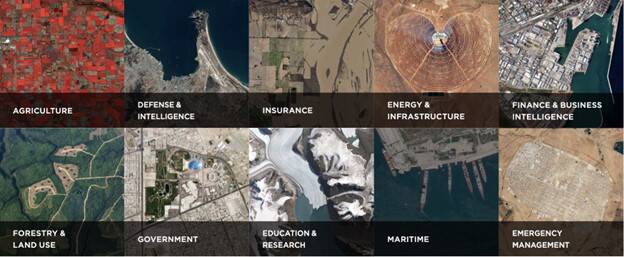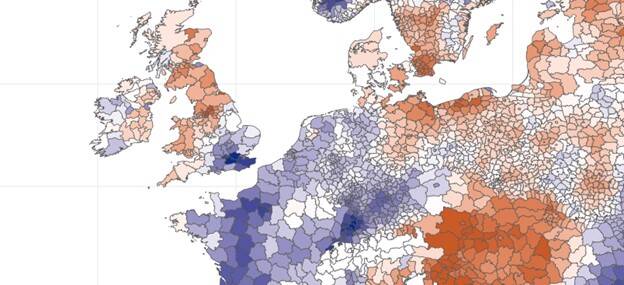Register for free and continue reading
Join our growing army of changemakers and get unlimited access to our premium content

Renewable energy as seen from space: London Array Wind Farm, United Kingdom. April 17, 2016. Source: PlanetScope
Governments face two enormous challenges that will require fundamental changes in society and the economy: climate change adaptation and digitisation. Tracking and responding to these challenges will require reliable, scalable, and consistent sources of data.
The UK Government has made it clear that investing in geospatial sciences is a national priority in the UK Geospatial Strategy 2030, which, it claims, “will unlock billions of pounds in economic benefits through harnessing technologies, such as AI, satellite imagery, and real-time data,” while improving public services and underpinning environmental recovery.
Reliable, scalable, and consistent: meet Planet data
Planet – a satellite data company that owns and operates the largest constellation of Earth observation satellites in history – is revolutionising the way governments, businesses, scientists, and journalists monitor change to more effectively manage land and infrastructure, steward natural resources, protect the environment, and prepare for emergencies.
With a fleet of hundreds of satellites in orbit, Planet is the leading provider of global, daily satellite imagery and geospatial solutions, and is driven by a mission to image all of Earth’s landmass every day and make global change visible, accessible, and actionable. Learn how Planet is revolutionising industries with its high-frequency data.
Image: Insights for every industry
These data feeds unlock the unprecedented opportunity to measure, track, and respond to environmental change.
Image: Soil Water Content, one of the Planetary Variables data sources, as measured over part of Europe in June 2021, shows areas with varying drought risk. Over the next half century, the UK Met Office projects winter will be 1-4.5°C warmer, and up to 30% wetter. Summers are projected to be 1-6°C warmer and pose 60% drier conditions, according to the UK Meteorological Office.
Monitoring a changing climate
The UK Meteorological Office predicts warmer and wetter winters and hotter and drier summers in the UK. According to the University of Cambridge Centre for Earth Observation, “Earth observation satellites provide the most comprehensive real-time check on the health of the planet and are playing a crucial role in the fight against global heating now and even more so in the future.”
Last month in edie, we discussed some of the ways Earth observation data might be able to help measure and mitigate sewage overspills during floods in the rainy months in the UK. Other satellite data, such as Soil Water Content, are already being used to monitor drought conditions by directly measuring the water available to plants, instead of measuring rainfall, which can’t account for evaporation and runoff.
These Planetary Variables are listed as Essential Climate Variables, crucial data points established by the United Nations Framework Convention on Climate Change, the World Meteorological Organization, and space agencies that operate Earth observation satellites.
Geospatial data is key to reaching net-zero
Tracking these climate variables is vital to provide reliable, objective evidence to monitor and measure climatic changes and efforts to mitigate their effects. In order to achieve the ambitious Net Zero Strategy, the UK will need robust and timely Earth observation data that is easily accessible and actionable.
Geospatial Data is Critical to Climate Change Adaptation
Planet solutions can support informed decision-making across industries in the UK as the country adapts to a warming climate.
In an agriculture case study, for example, Planet data is being used to provide farmers with objective, index-based insurance against yield losses due to drought. While these insights have been critical for farmers, they have also proved to be valuable for developing new approaches to mitigate the effects of climate change beyond agriculture, such as monitoring natural disaster risk.
Visit Planet.com to learn more about how Planet Solutions can help your team monitor and respond to change both here in the UK, and around the globe.





Please login or Register to leave a comment.